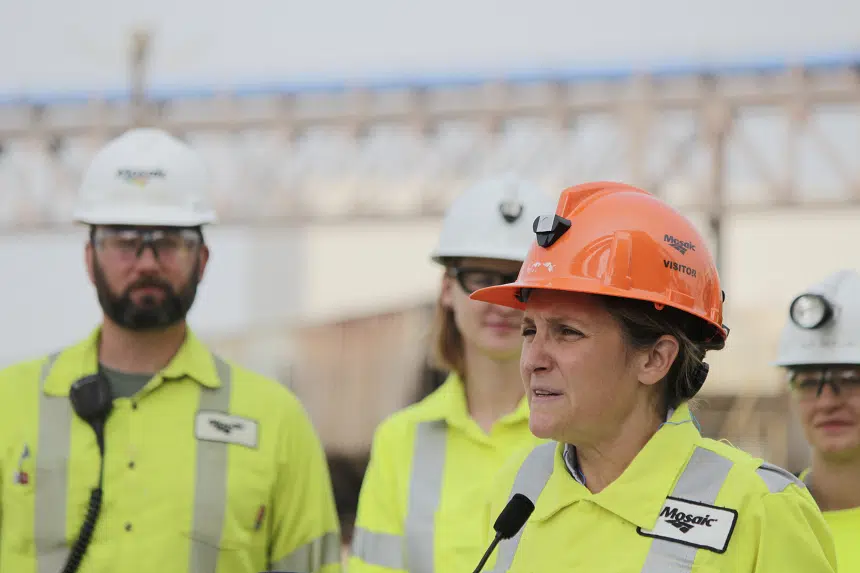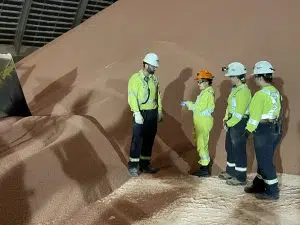Canada’s deputy prime minister had plenty of good things to say about potash Wednesday.
During Chrystia Freeland’s tour around the Mosaic Potash mine in Colonsay — part of her unexpected mid-week stop in the province — she spoke highly of Saskatchewan, the province’s resources, and its warm welcome to displaced Ukrainians.
Noting Wednesday was Ukrainian Independence Day, Freeland said the first thing she saw after getting off the plane Tuesday night in Saskatchewan was a blue and yellow Ukrainian flag. She said she found it encouraging and welcoming.
After making a joke about her height – five-foot-two – as she stepped onto a box to address Saskatchewan media while clad in an orange hardhat and yellow safety jumpsuit early Wednesday afternoon, Freeland connected the importance of potash to Ukraine, commending the province for filling a global need with the resource as Russia and Belarus are “quite rightly” being shut out of the global economy.
“That’s one of the reasons I’m here; to remind Canadians how lucky we are to be so richly endowed in this essential resource,” Freeland said.
“It is a source of fantastic jobs, it is an essential input when it comes to growing the food that feeds the world, and today it has become geopolitically essential.”
Freeland said her summer has been spent getting out of Ottawa to get a “fingertip feel” of what’s happening in other parts of the country.
No announcements were shared by the deputy prime minister in Colonsay, but she did highlight $3.8 billion in spending set out in the spring budget for Canada’s first critical mineral strategy, and noted Saskatchewan is emerging as a global leader for more than 20 crucial minerals.
Freeland said those resources bring good jobs, grow the economy and offer incentives for more business investment in Saskatchewan.
Potash is a mined salt that can be used in fertilizer, which meant Freeland was questioned by reporters about the federal government’s proposal to slash carbon emissions from fertilizer use during her visit.
Freeland responded by speaking highly of potash itself and Canadian farmers.
“Canadian farmers are very, very smart,” she said. “I know a lot of farmers, and I do not know a single farmer who uses more fertilizer than he or she absolutely needs to.”
Freeland went on to say that fertilizer is expensive, and she trusts farmers to continue using the minimal amounts they deem appropriate to continue growing the food consumers need.
“You are feeding the world,” Freeland said, speaking to Saskatchewan’s producers and resource suppliers.












